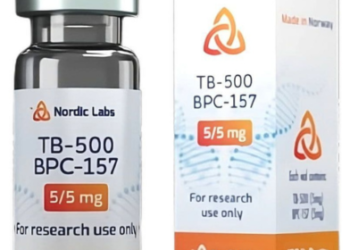1. Introduction to Allergies
Allergies occur when the immune system reacts to substances like pollen, dust, or pet dander. Common symptoms include sneezing, itching, runny nose, and watery eyes. While medication can help, home remedies are also effective in managing allergy symptoms.
2. Importance of Home Remedies
Home remedies offer natural and cost-effective ways to alleviate allergy symptoms. They can be easily incorporated into daily routines and often have fewer side effects compared to medications.
3. Using Saline Nasal Rinse
A saline nasal rinse helps clear out allergens and mucus from the nasal passages. Mixing a teaspoon of salt with warm water and using a neti pot or nasal spray can reduce congestion and irritation.
4. Drinking Herbal Teas
Herbal teas like peppermint, ginger, and chamomile have anti-inflammatory properties that can soothe allergy symptoms. Drinking these teas regularly can help reduce congestion and provide relief from itching and irritation.
5. Local Honey for Allergy Relief
Consuming local honey may help your body adapt to local pollen, potentially reducing allergy symptoms over time. Add a spoonful of local honey to your tea or breakfast to help build immunity against pollen.
6. Quercetin-Rich Foods
Quercetin is a natural antihistamine found in foods like apples, berries, and onions. Incorporating quercetin-rich foods into your diet can help reduce the release of histamines, which cause allergy symptoms.
7. Staying Hydrated
Drinking plenty of water helps thin mucus, making it easier to expel allergens from your system. Staying hydrated also helps maintain overall health and can alleviate symptoms like dry throat and nasal passages.
8. Using Essential Oils
Essential oils like eucalyptus, peppermint, and lavender have anti-inflammatory and decongestant properties. Using a diffuser or adding a few drops to a steam inhalation can help clear nasal passages and reduce allergy symptoms.
9. Probiotics for Immune Support
Probiotics found in yogurt, kefir, and supplements can help balance the immune system and reduce allergic reactions. A healthy gut microbiome is crucial for maintaining a strong immune response.
10. Steam Inhalation
Inhaling steam can help open up nasal passages and relieve congestion. Adding a few drops of essential oils to the steam can enhance the decongestant effect and provide additional relief from allergy symptoms.
11. Consuming Anti-Inflammatory Foods
Anti-inflammatory foods like turmeric, ginger, and leafy greens can help reduce inflammation and alleviate allergy symptoms. Incorporate these foods into your diet to support your body’s natural defenses.
12. Keeping Windows Closed
During high pollen seasons, keep windows closed to prevent allergens from entering your home. Use air conditioning with clean filters to maintain a comfortable indoor environment without exposing yourself to outdoor allergens.
13. Regular Cleaning
Dust and vacuum your home regularly to reduce allergens like dust mites and pet dander. Use a vacuum cleaner with a HEPA filter and wash bedding in hot water weekly to keep allergens at bay.
14. Using Air Purifiers
Air purifiers with HEPA filters can effectively remove allergens from the air in your home. Place air purifiers in commonly used rooms to improve air quality and reduce allergy symptoms.
15. Wearing Sunglasses Outdoors
Wearing sunglasses can help protect your eyes from airborne allergens like pollen and dust. Choose wraparound styles for the best protection and relief from itchy, watery eyes.
16. Showering After Being Outdoors
Showering and changing clothes after spending time outdoors can help remove pollen and other allergens from your skin and hair. This prevents allergens from spreading inside your home and reduces exposure.
17. Nasal Sprays
Using saline nasal sprays can help keep nasal passages moist and clear of allergens. Regular use can reduce nasal congestion and irritation caused by allergies.
18. Neti Pot Usage
A neti pot can help flush out allergens and mucus from the nasal passages. Use a saline solution and follow the instructions carefully to safely and effectively reduce allergy symptoms.
19. Applying Cold Compresses
Applying a cold compress to itchy, swollen eyes can provide quick relief. The cold temperature helps reduce inflammation and soothe irritation caused by allergens.
20. Herbal Supplements
Herbal supplements like butterbur, stinging nettle, and spirulina have been shown to help alleviate allergy symptoms. Consult with a healthcare provider before starting any new supplement regimen.
21. Eucalyptus Oil
Eucalyptus oil has anti-inflammatory and decongestant properties. Add a few drops to a bowl of hot water and inhale the steam, or use a diffuser to help clear nasal passages and reduce allergy symptoms.
22. Ginger Tea
Ginger has natural anti-inflammatory properties. Drinking ginger tea can help reduce allergy symptoms and provide relief from congestion and irritation.
23. Apple Cider Vinegar
Apple cider vinegar can help reduce mucus production and cleanse the lymphatic system. Mix a teaspoon of apple cider vinegar with a glass of water and drink it daily to help alleviate allergy symptoms.
24. Avoiding Outdoor Activities During Peak Pollen Times
Pollen counts are typically highest in the early morning and late afternoon. Plan outdoor activities for later in the day or on days when pollen counts are lower to reduce exposure to allergens.
25. Conclusion: Managing Allergies Naturally
Home remedies offer effective and natural ways to manage allergy symptoms. By incorporating these remedies into your daily routine, you can reduce your dependence on medications and improve your quality of life. Always consult with a healthcare provider before starting any new treatment, especially if you have underlying health conditions.










